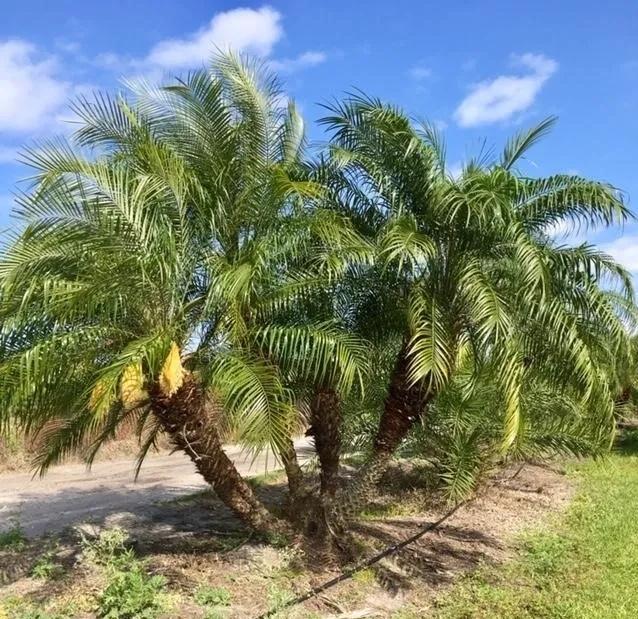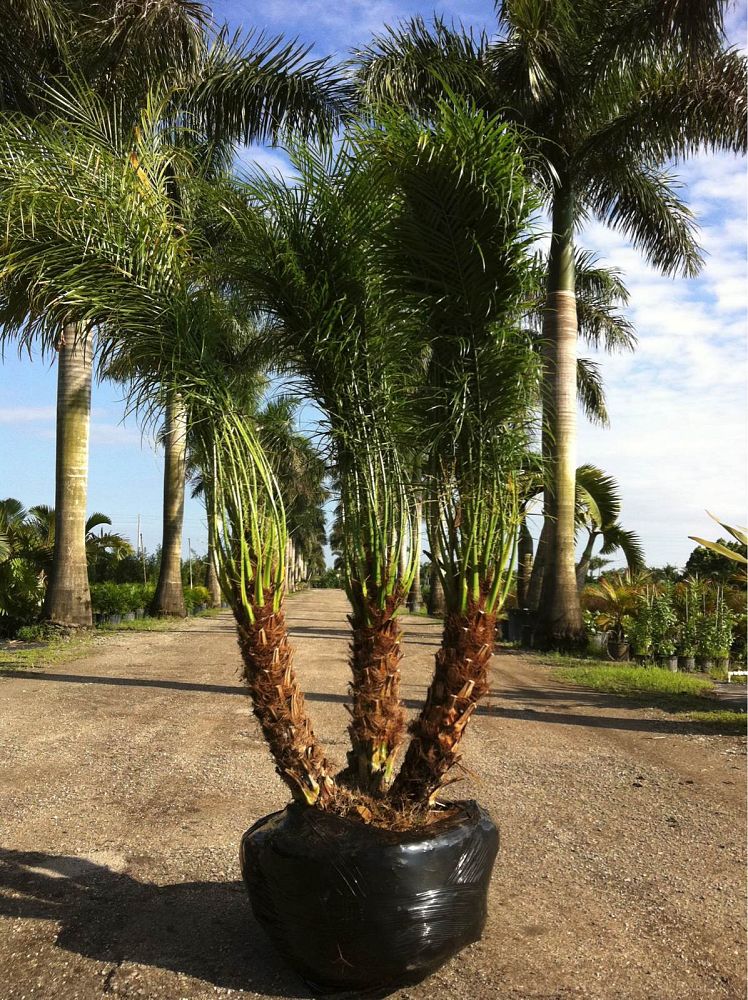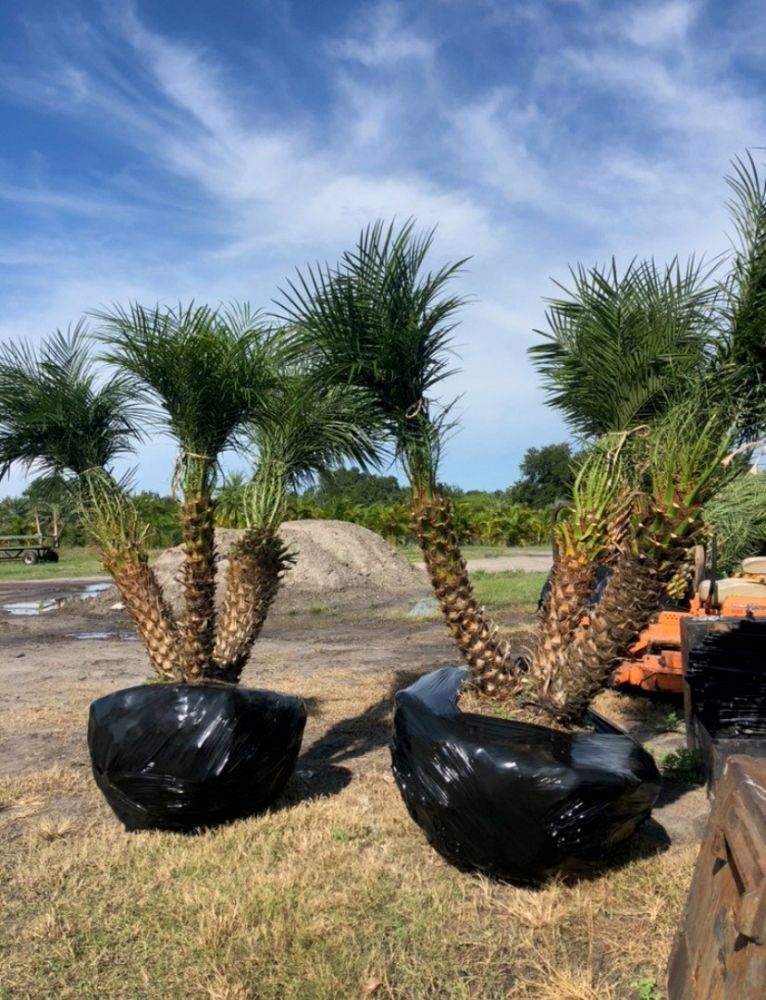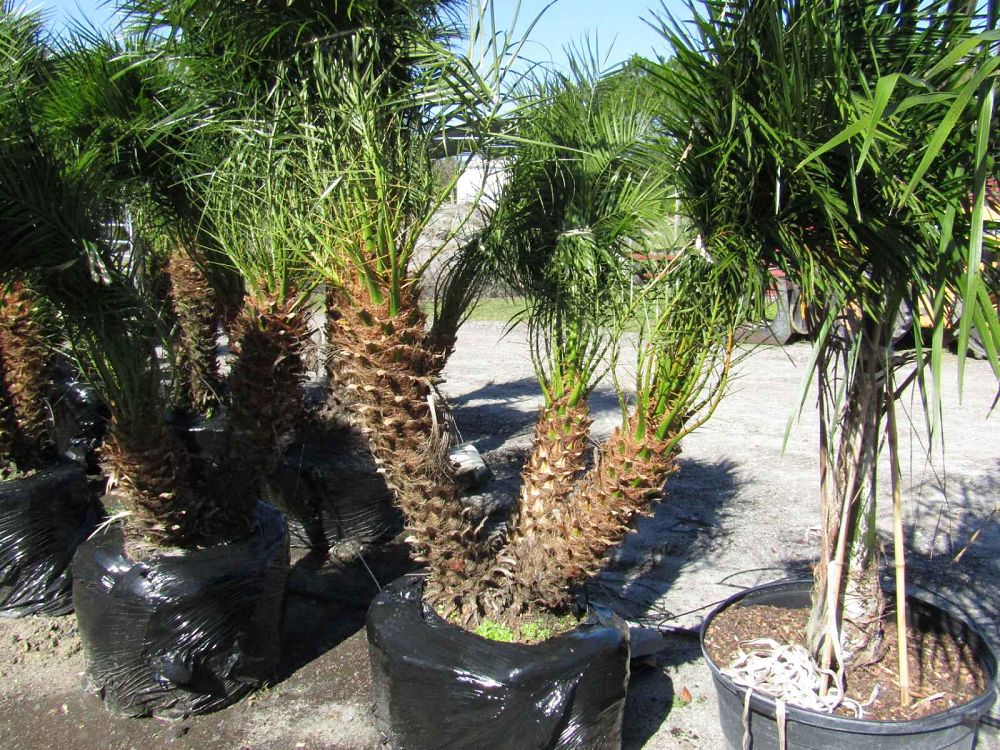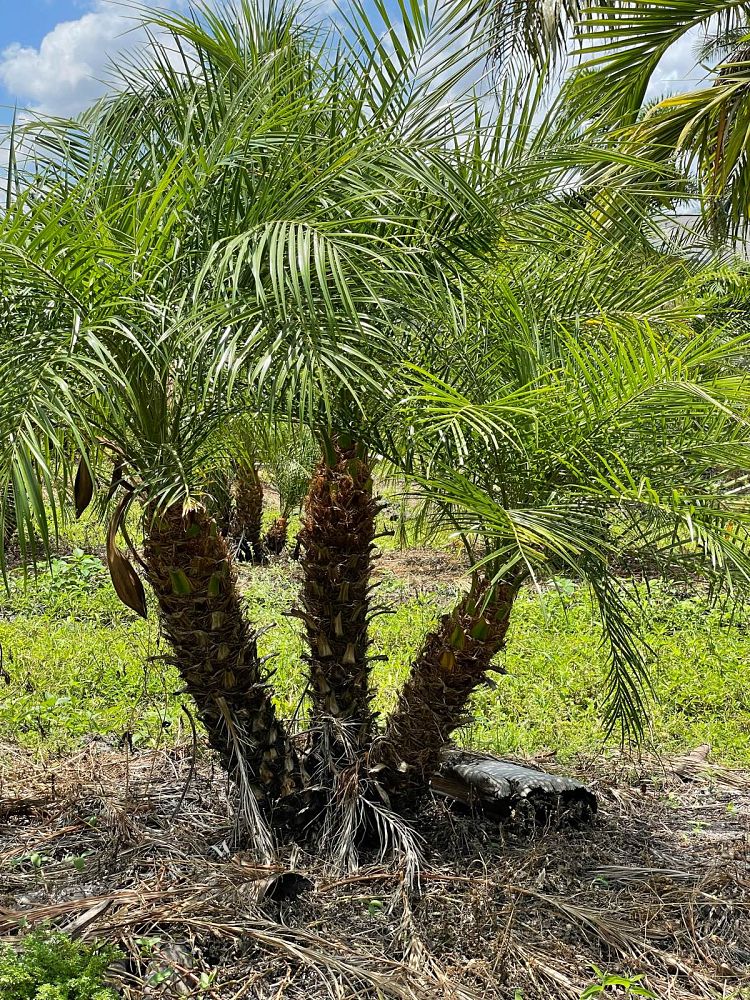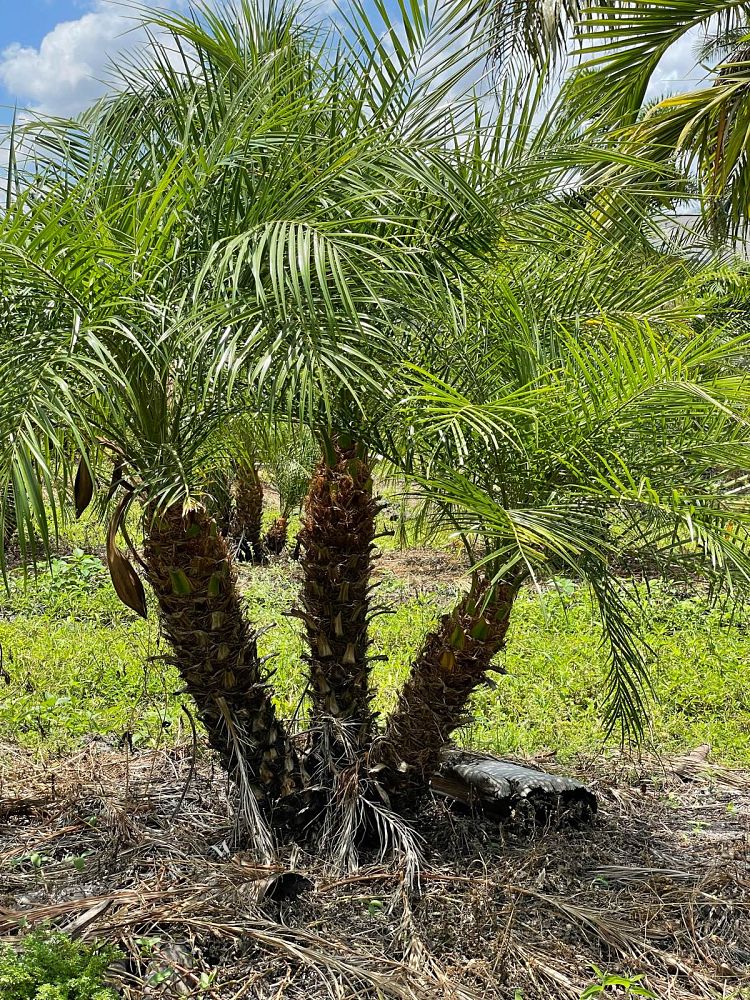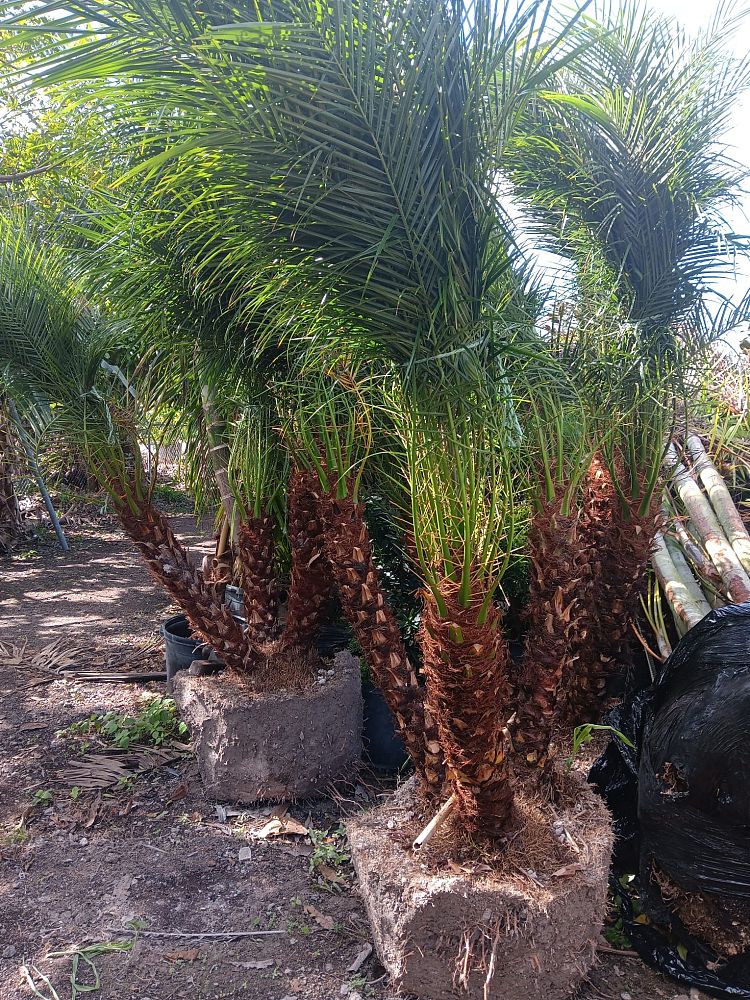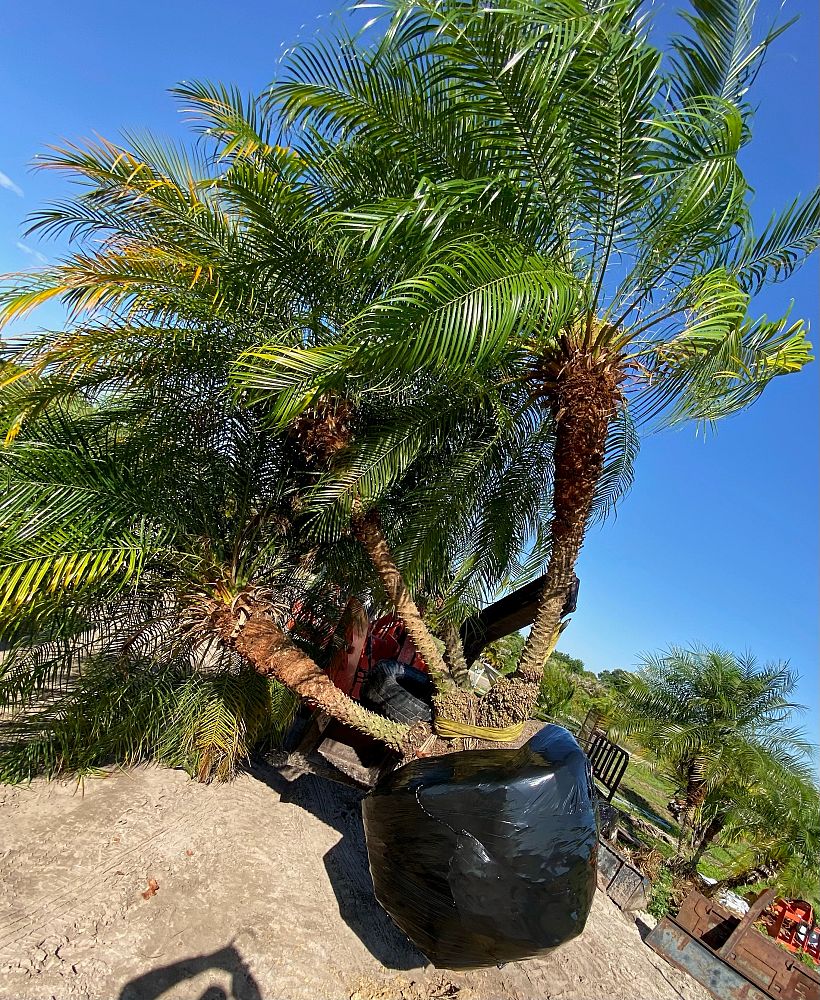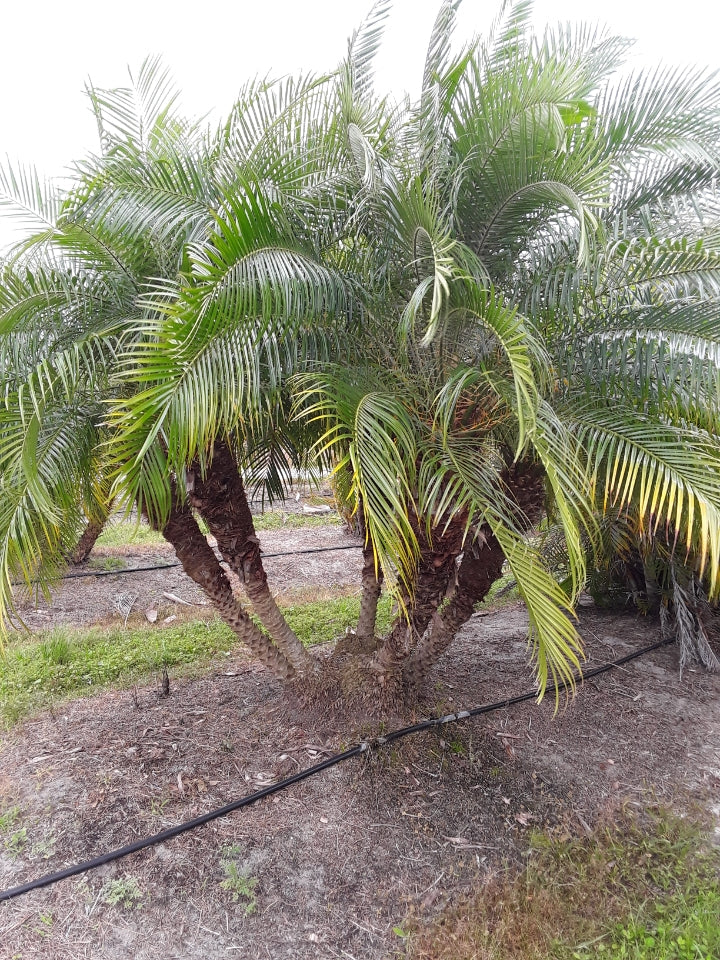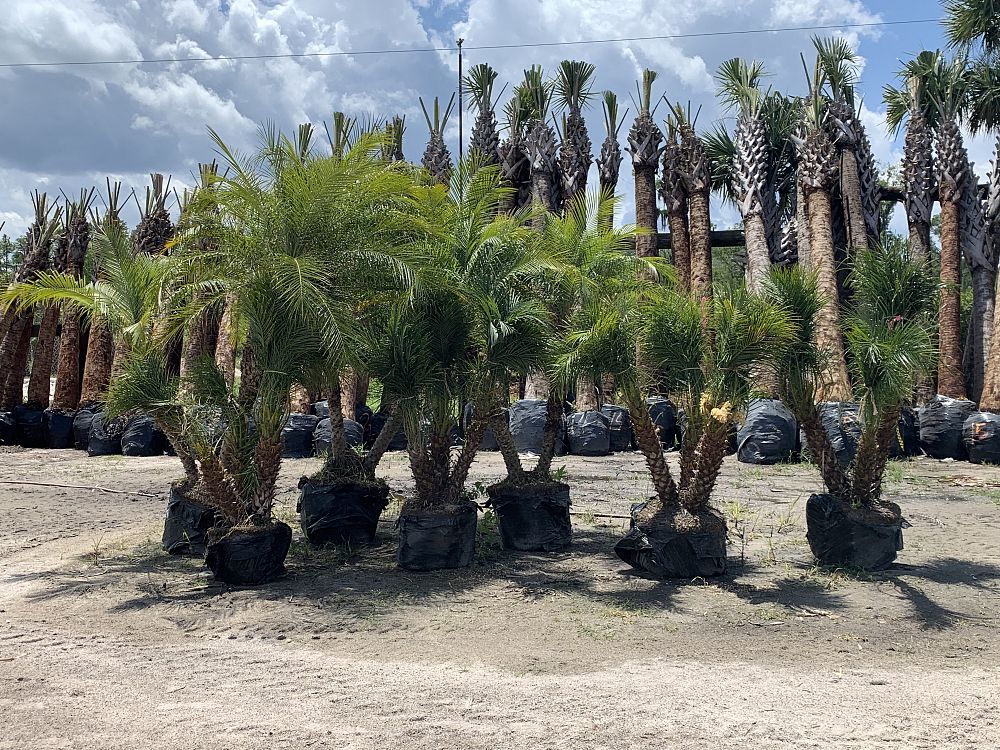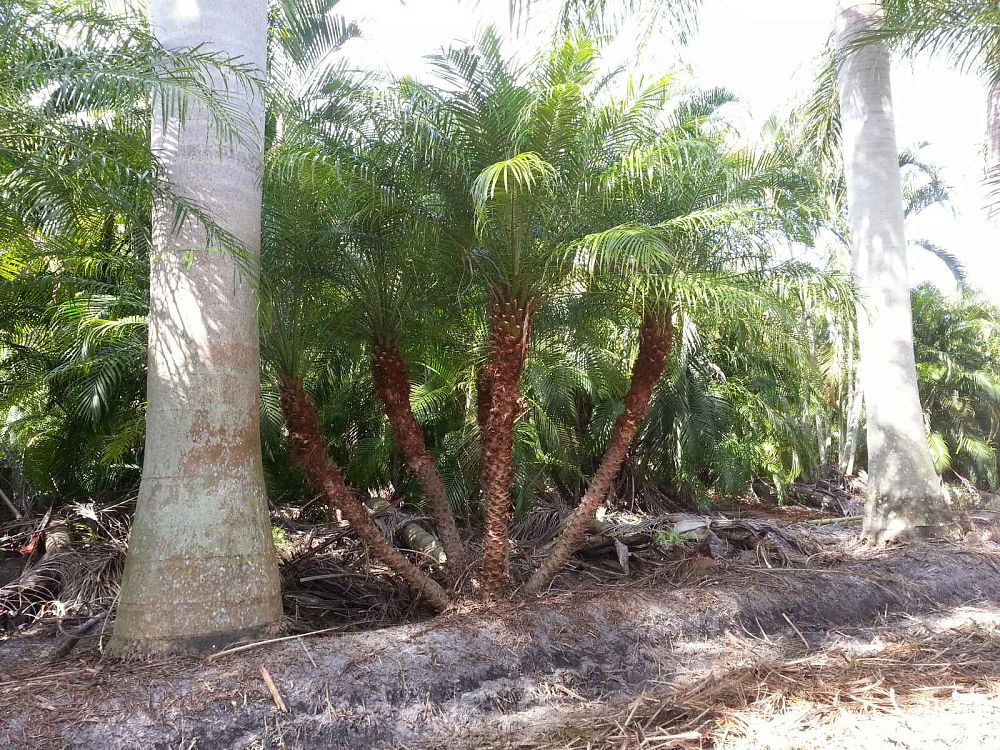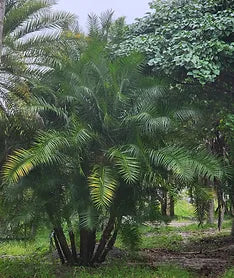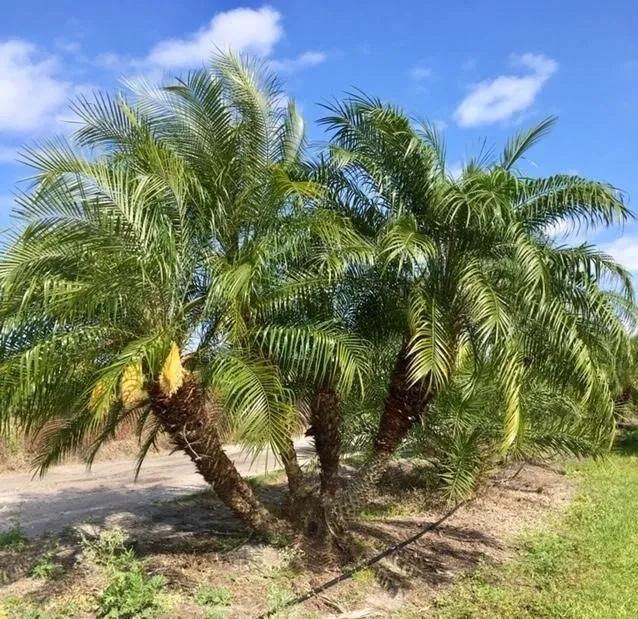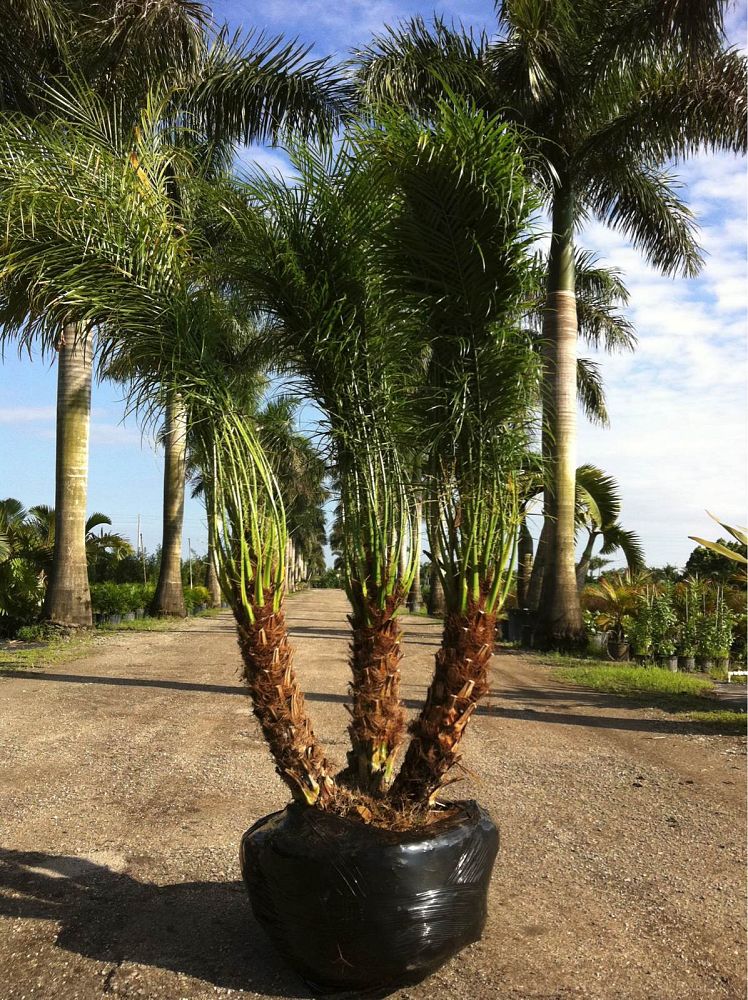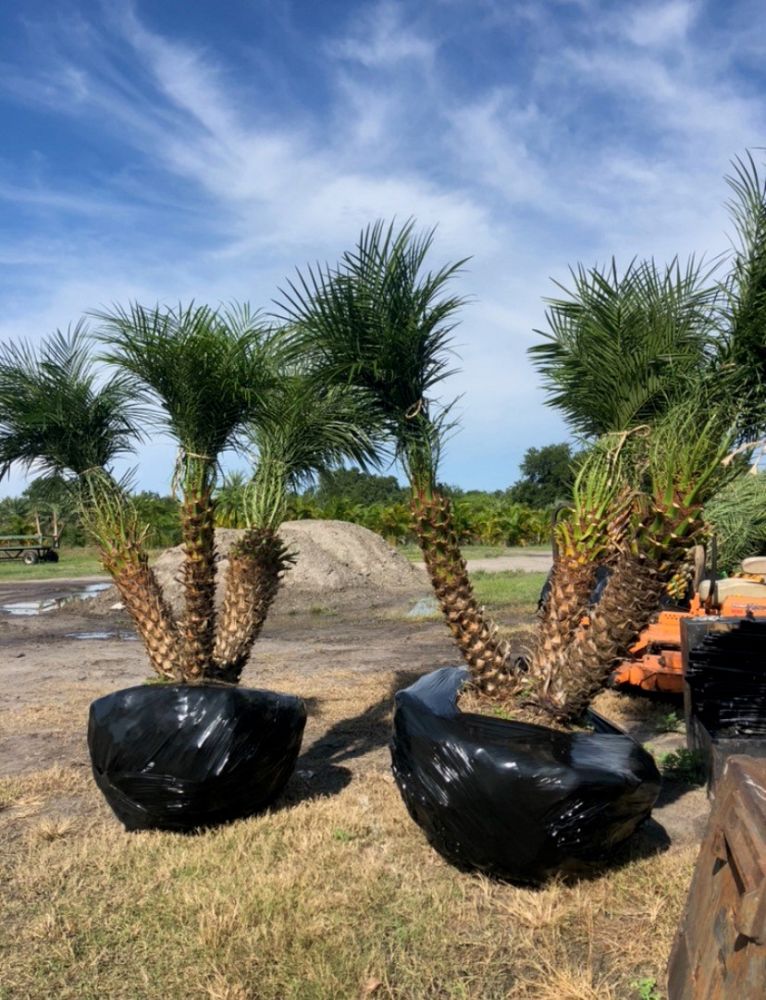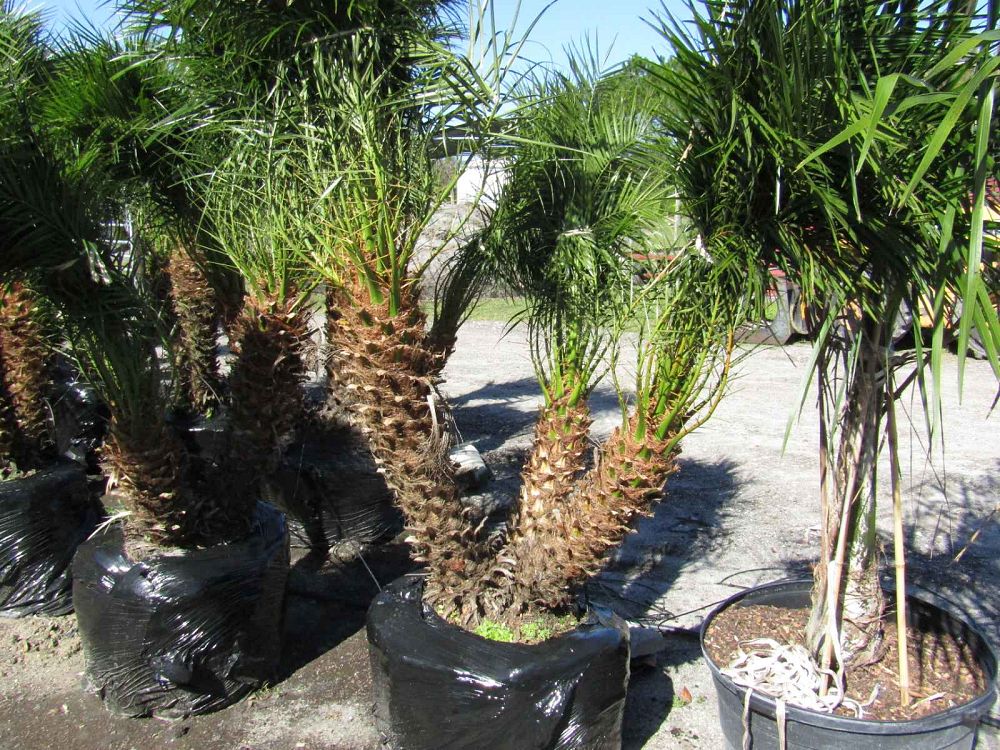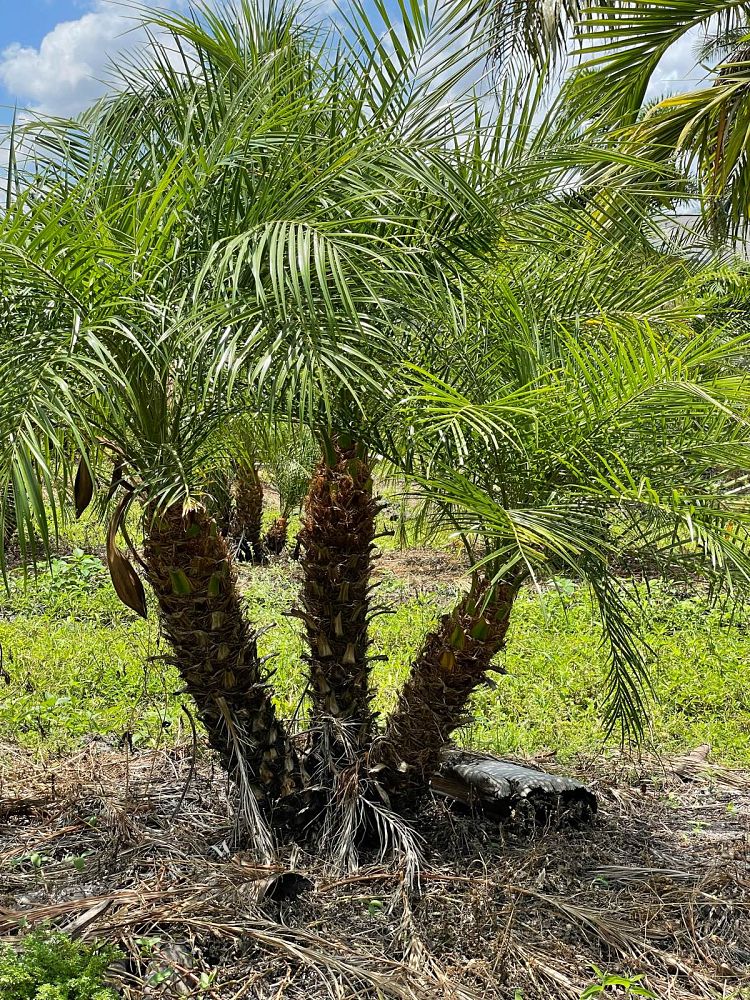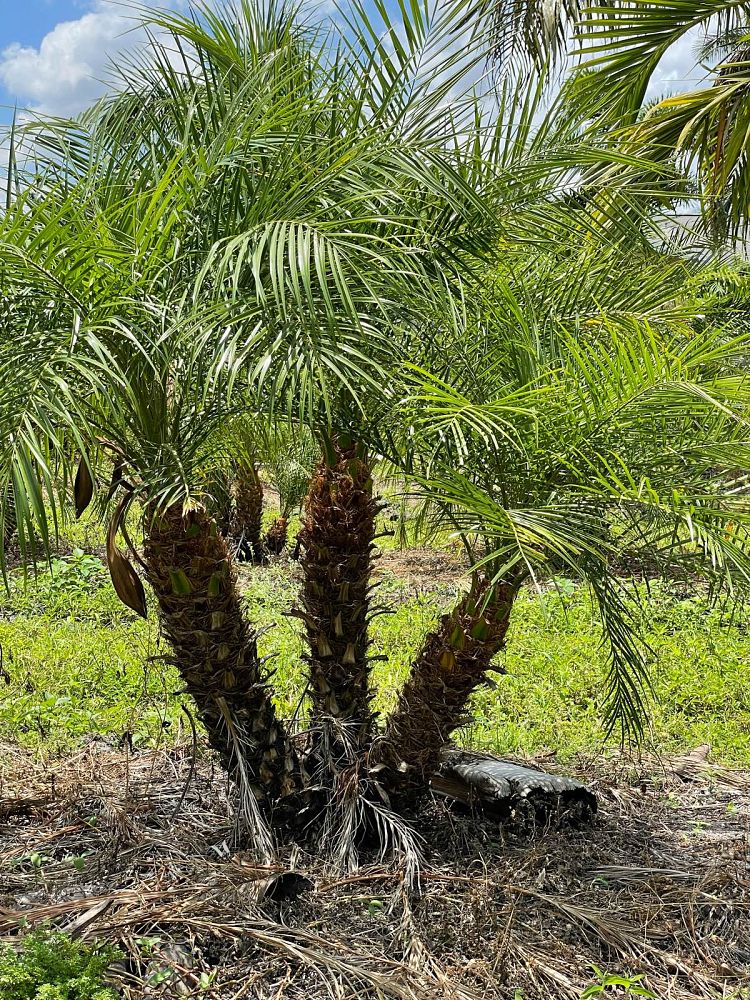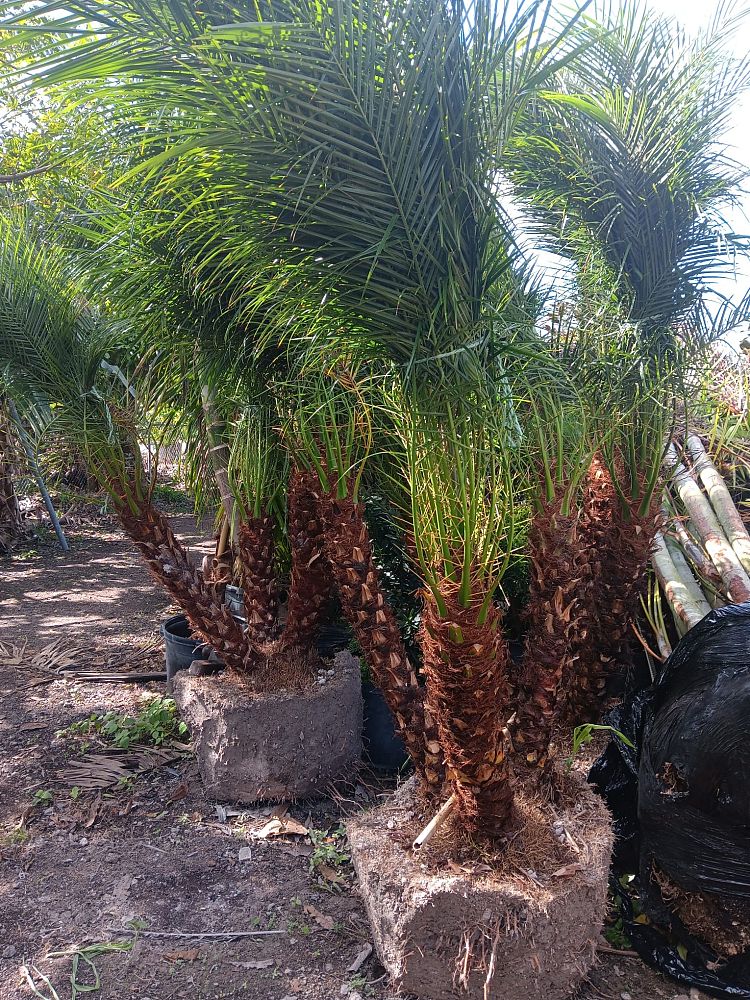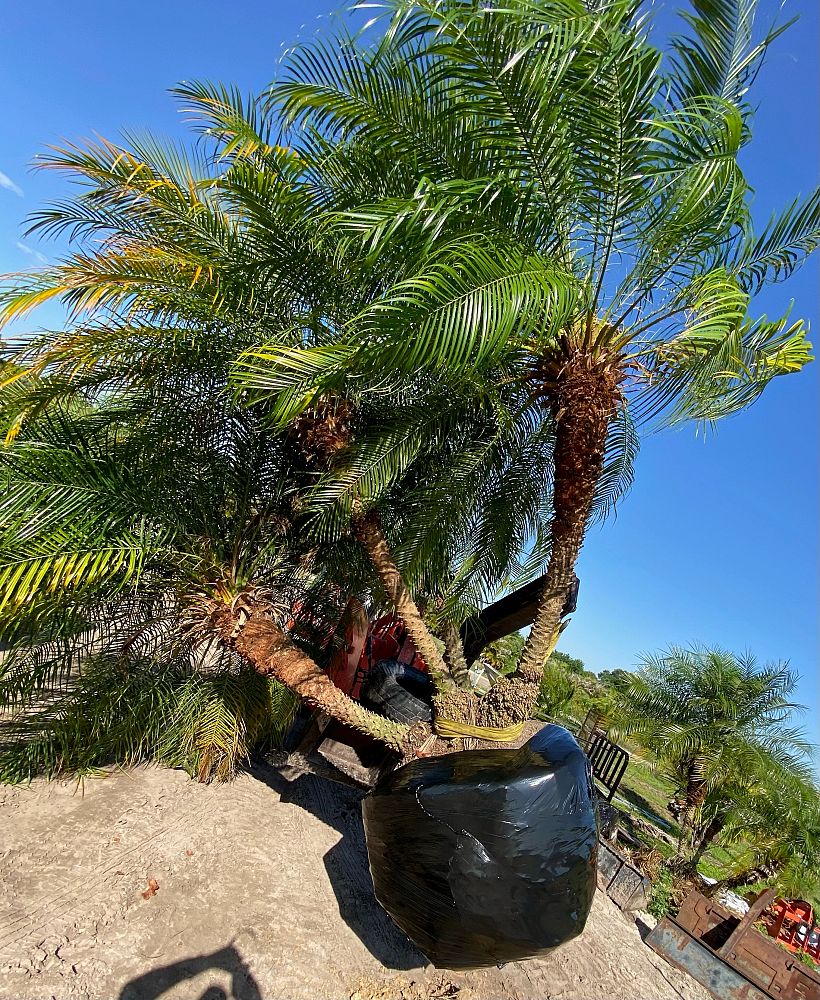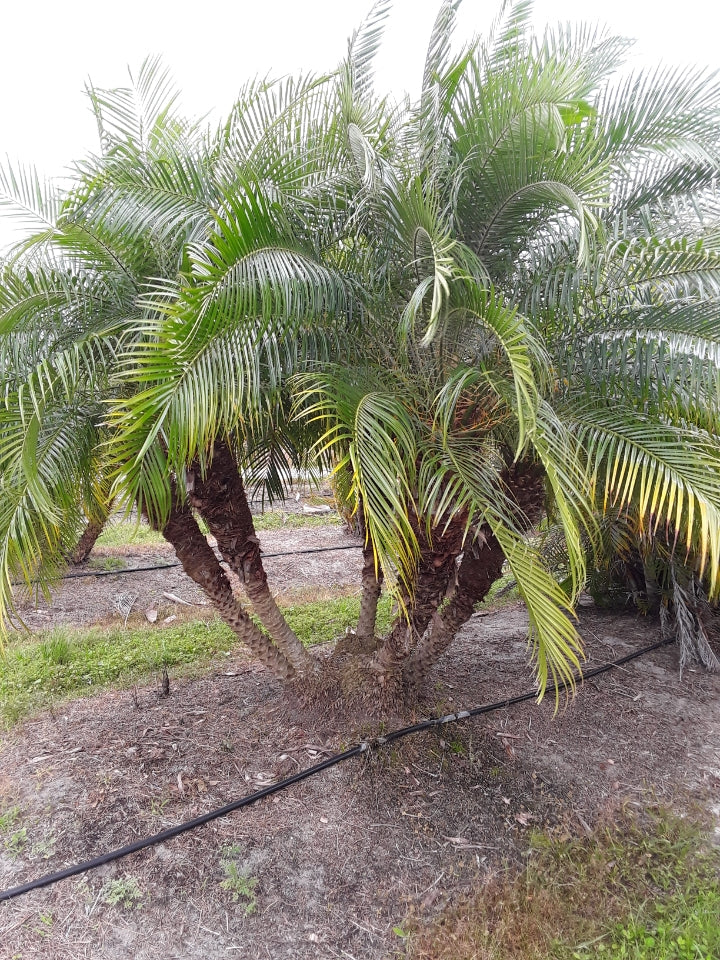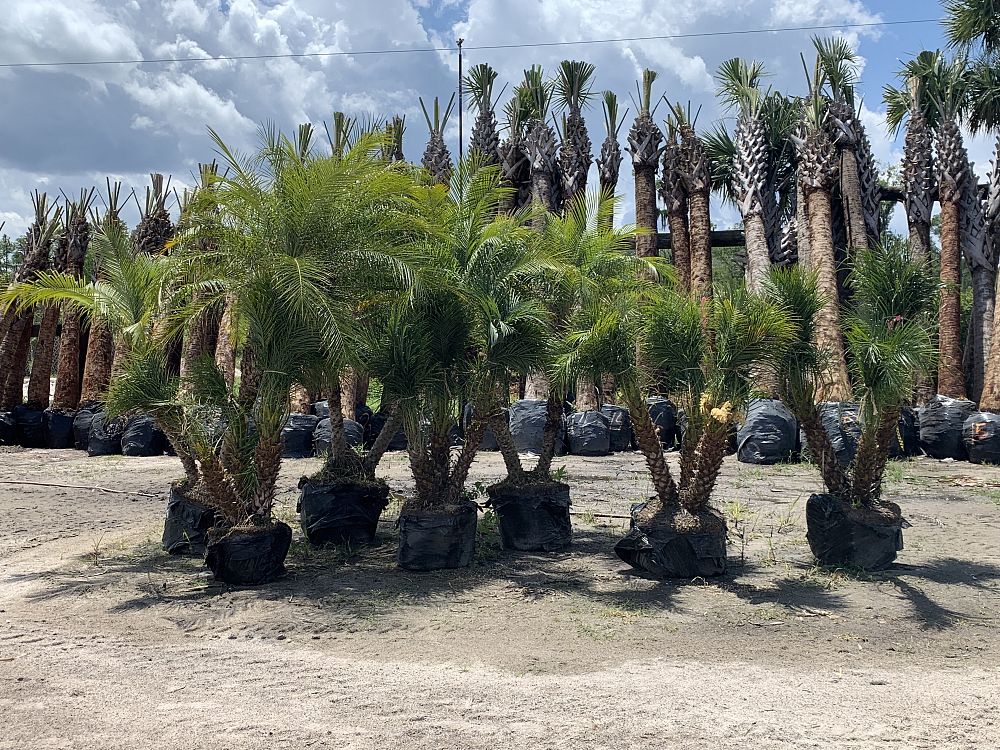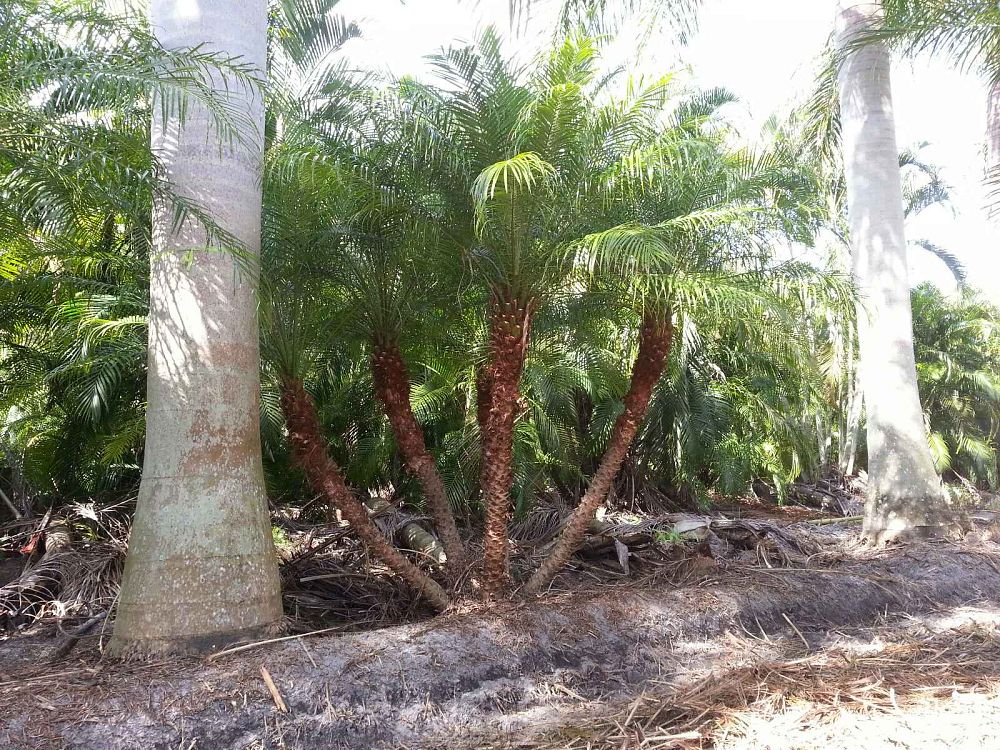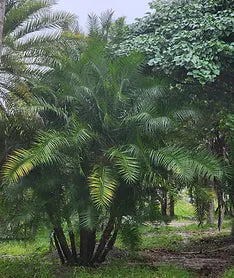Premium Field Grown Palm Trees - Smart Choice Roebelini (Pygmy Date) Palm
Premium Field Grown Palm Trees - Smart Choice Roebelini (Pygmy Date) Palm
Couldn't load pickup availability
Product Cubic Yard Calculator
Use this calculator to estimate how many cubic yards of material you need for your project, plus approximate bags, deliveries, weed barrier, staples, and edging.
Results
Approx. sq ft coverage
Approx. linear feet
Staples are sold individually for $0.25 each. For best results, round up to ensure full edge and seam coverage.
Project perimeter: ft
Approx. × 20-ft sticks
Approx. bundle(s) of 10 sticks (rounded up)
The Phoenix Roebelini
Pygmy Date Palm
Overview
Phoenix Roebelenii commonly known as the Dwarf Date Palm, Pygmy Date Palm, Miniature Date Palm, or Robellini Palm, is a species of date palm native to southeastern Asia, including southwestern China, northern Laos, and northern Vietnam. The Latin specific epithet roebelenii honors the orchid collector Carl Roebelen. This palm is cherished for its feathery fronds and small stature, making it one of South Florida's most popular landscape palms. Its beautiful and easy-care nature allows it to be used almost anywhere as an accent plant, suitable for any size yard, even close to the house or by the pool.
Naturally a solitary-trunk palm, the pygmy date palm is often planted with two, three, or even four palms together to create a multi-trunk specimen. The additional trunks add fullness to its graceful form, making it a versatile and attractive choice for various landscaping needs. A single-trunk pygmy takes up less room and generally grows straight up, making it ideal for narrow spots, while a double-trunk palm can frame and showcase a focal point.
Cold Hardiness
Phoenix Roebelenii, or Pygmy Date Palm, is generally cold hardy to USDA Zone 9B, tolerating temperatures down to 25°F. While it can endure brief cold spells, extended exposure to cold can cause leaf-tip burn and other damage. In particularly cold winters, planting in a sheltered location can help protect the palm from wind and frost damage, ensuring it remains a beautiful and resilient addition to the landscape.
Plant Specs
Phoenix Roebelenii, commonly known as the Pygmy Date Palm, is a slow-growing palm that typically reaches an ultimate height of about 12 feet. It thrives in full sun to partial shade, making it versatile for various planting locations. This palm is generally cold hardy to Zone 9B, although it may show leaf-tip burn if exposed to very cold winds. Known for its graceful and feathery fronds, the Pygmy Date Palm can be planted as a single-trunk specimen or as a multi-trunk cluster, adding fullness and elegance to any landscape. It is also considered deer-resistant, although this is not guaranteed.
Plant Care
The Phoenix Roebelenii or Pygmy Date Palm is low-maintenance. It should be planted with topsoil as a soil amendment and fertilized with granular palm fertilizer in spring, summer, and fall. Old fronds and occasional seed pods form a brown "petticoat" under the greenery, which should be trimmed off periodically. Regular watering is essential to keep this palm healthy.
Plant Spacing
The Phoenix Roebelenii or Pygmy Date Palm, known for its compact size and elegant fronds, requires strategic spacing for optimal growth. When planting near structures, allow at least 3 feet of clearance from the house to accommodate its eventual size. For multi-trunk specimens, positioning the trunks appropriately ensures they have space to spread without overcrowding. Single-trunk pygmy palms can be placed closer, around 3 feet from the house, depending on the desired aesthetic and future growth considerations. This spacing ensures the palms can flourish while maintaining their ornamental appeal in the landscape.
Landscape Uses for Phoenix Roebelenii
The Phoenix Roebelenii or Pygmy Date Palm offers versatile landscaping options due to its compact size and graceful appearance. It serves well as an accent plant near entryways or within pool-cage planters, where its slow growth and moderate height are advantageous. Planted between taller palms, it acts as a soft companion plant and provides moderate privacy near windows. It also functions effectively as a corner accent, anchoring garden beds, or as a single specimen in smaller yards or confined areas. Its ability to thrive in containers makes it suitable for patio or poolside arrangements, enhancing architectural elements with its lush foliage.
Companion Plants Suggestions
While the palm is short with fronds cascading nearly to the ground, use low-growing plants such as dwarf oyster plant, bromeliads, or pentas, all of which enjoy the bit of shade the palm will provide. If there's enough trunk showing, you can venture into small shrubs such as Indian hawthorn, dwarf ixora, or 'Plum' loropetalum, or flowering perennials such as white buttercup.
Pricing, Availability and Additional Information
Please note that the prices reflected on our website for our featured collection of palm trees are only starting estimates and the actual price of each palm tree may vary. Several factors influence the final price, including the size and height of the tree, its overall height, amount of clear trunk and green wood, the complexity of delivery, seasonal demand, and specific market conditions. For an accurate quote tailored to your needs, please contact us directly.
Explore our photographs of Phoenix Roebelenii or Pygmy Date Palm tailored to meet your landscaping needs. For inquiries regarding availability and additional information, please contact us directly at sales@mulchandstuff.com or call us at 386-302-6444. Our palm tree farms in South Florida ensure the highest quality specimens, sourced exclusively for your landscaping endeavors. Representative photographs of available Phoenix Roebelenii or Pygmy Date Palm are provided, with additional images available upon request. Specify your desired height and any specific requirements, along with the planting location, to facilitate the selection of the perfect Phoenix Roebelenii or Pygmy Date Palm for your landscaping needs.
Share
